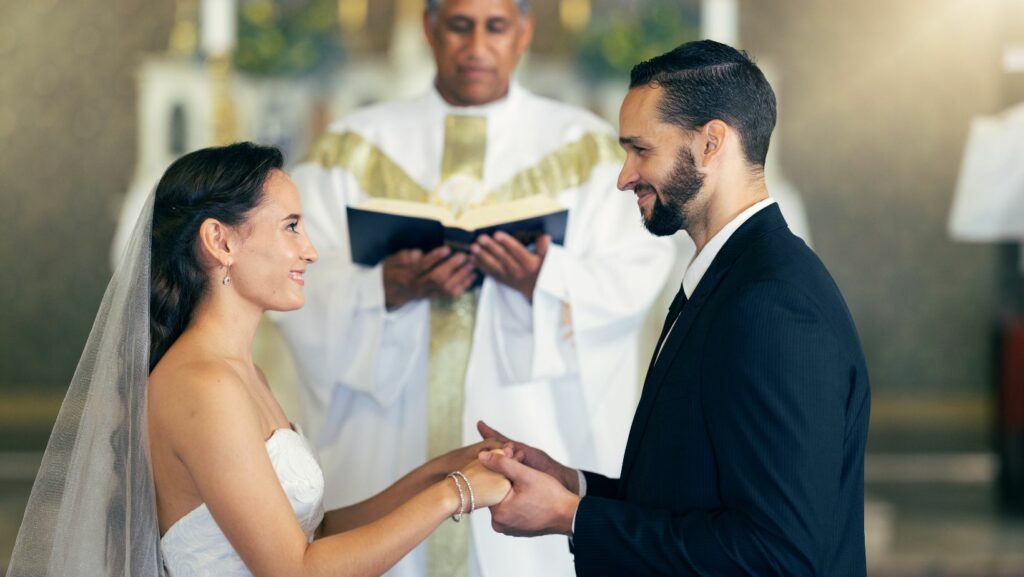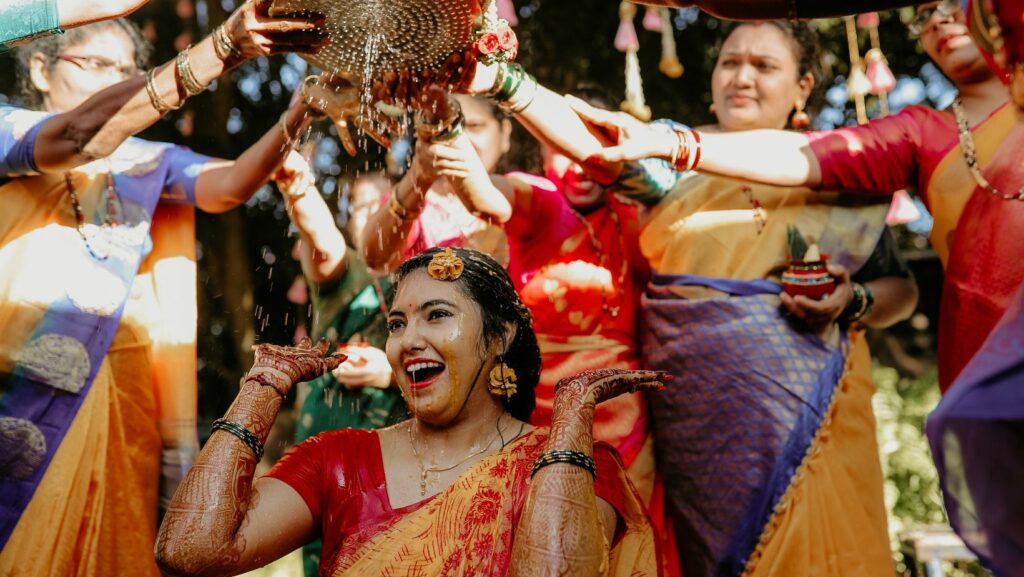 In the tapestry of a Christian wedding, traditional vows serve as the cornerstone, weaving together a couple’s commitment before God and their community. These vows, often steeped in centuries-old customs, reflect the solemnity and sanctity of marriage. They provide a timeless framework that resonates with the values of faith, love, and devotion. Though modern couples sometimes opt for personalized vows, many still cherish the profound significance of traditional Christian vows. These words, echoing through generations, embody promises of fidelity, support, and unconditional love. They remind couples of the spiritual journey they embark upon together, grounded in shared beliefs and divine guidance. By understanding the origins and meanings behind these sacred promises, couples can deepen their appreciation and connection during the ceremony. Traditional Christian wedding vows not only honor the past but also set a spiritual foundation for a lifelong partnership, enriching the celebration of love and unity.
In the tapestry of a Christian wedding, traditional vows serve as the cornerstone, weaving together a couple’s commitment before God and their community. These vows, often steeped in centuries-old customs, reflect the solemnity and sanctity of marriage. They provide a timeless framework that resonates with the values of faith, love, and devotion. Though modern couples sometimes opt for personalized vows, many still cherish the profound significance of traditional Christian vows. These words, echoing through generations, embody promises of fidelity, support, and unconditional love. They remind couples of the spiritual journey they embark upon together, grounded in shared beliefs and divine guidance. By understanding the origins and meanings behind these sacred promises, couples can deepen their appreciation and connection during the ceremony. Traditional Christian wedding vows not only honor the past but also set a spiritual foundation for a lifelong partnership, enriching the celebration of love and unity.
Wedding Vows Traditional Christian
 Traditional Christian wedding vows hold significant weight in Christian wedding ceremonies. These vows typically promise love, fidelity, and support, aligning with biblical principles. Couples pledge to cherish each other “for better or worse, for richer or poorer, in sickness and in health,” demonstrating a commitment to lifelong partnership. This language underscores the sacred covenant between the couple and God.
Traditional Christian wedding vows hold significant weight in Christian wedding ceremonies. These vows typically promise love, fidelity, and support, aligning with biblical principles. Couples pledge to cherish each other “for better or worse, for richer or poorer, in sickness and in health,” demonstrating a commitment to lifelong partnership. This language underscores the sacred covenant between the couple and God.
Spiritual leaders often guide couples to recite these vows within a ceremony’s religious context. Clergy may highlight scripture relevant to marriage, such as 1 Corinthians 13:4-7, which emphasizes love’s qualities. This integration of faith ensures that vows resonate not only personally but spiritually.
The Significance of Vows in a Christian Marriage
Christian marriage vows hold a deep spiritual and legal significance. They serve as a solemn promise, uniting the couple under God’s covenant.
Spiritual Meaning
In a Christian marriage, vows symbolize a sacred commitment. Couples promise lifelong fidelity and love, aligning with biblical teachings. Often recited in a church, they invoke divine presence and blessing. These vows mirror Christ’s unwavering love for the Church, emphasizing sacrificial and unconditional love.
Legal Commitment
Beyond spirituality, wedding vows establish a legal contract. The couple declares mutual responsibilities and rights, recognized by the law. In many jurisdictions, these commitments form the basis of marital union, ensuring legal protections and obligations.
Elements of Traditional Christian Wedding Vows
Traditional Christian wedding vows encompass several core elements that define their essence, reflecting the couple’s enduring commitment and alignment with Christian values.
Promises and Commitments
 Central to traditional Christian wedding vows are the promises and commitments the couple makes before God and their community. These vows typically include pledges of fidelity, companionship, and support. Phrases like “to have and to hold” and “till death do us part” emphasize the lifelong nature of these commitments. By expressing these promises publicly, couples affirm their dedication to a partnership that withstands life’s challenges, aligning with the principles of faith and devotion.
Central to traditional Christian wedding vows are the promises and commitments the couple makes before God and their community. These vows typically include pledges of fidelity, companionship, and support. Phrases like “to have and to hold” and “till death do us part” emphasize the lifelong nature of these commitments. By expressing these promises publicly, couples affirm their dedication to a partnership that withstands life’s challenges, aligning with the principles of faith and devotion.
Love and Loyalty
Love and loyalty are integral to the vows, underscoring the emotional and spiritual bond the couple shares. Traditional phrases such as “for better or worse” and “in sickness and in health” articulate an unwavering commitment to stand by each other in all circumstances. This element reflects biblical teachings on love and fidelity, reinforcing the intention to nurture a lasting, faithful relationship. In doing so, couples honor the sacred covenant of marriage as a reflection of divine love.
Differences Among Christian Denominations
Different Christian denominations may have variations in how they approach wedding vows, yet the core elements remain consistent. While traditional vows are prevalent in many denominations, some may incorporate unique liturgical elements or additional prayers to reflect specific theological beliefs. For instance, Catholic weddings often include the exchange of rings as a sacramental sign, while Protestant ceremonies might emphasize scriptural readings. Despite these differences, the essence of committing to a lifelong partnership rooted in love and faith remains central. Understanding these nuances allows couples to choose vows that resonate with their beliefs while honoring the rich tapestry of Christian tradition.



